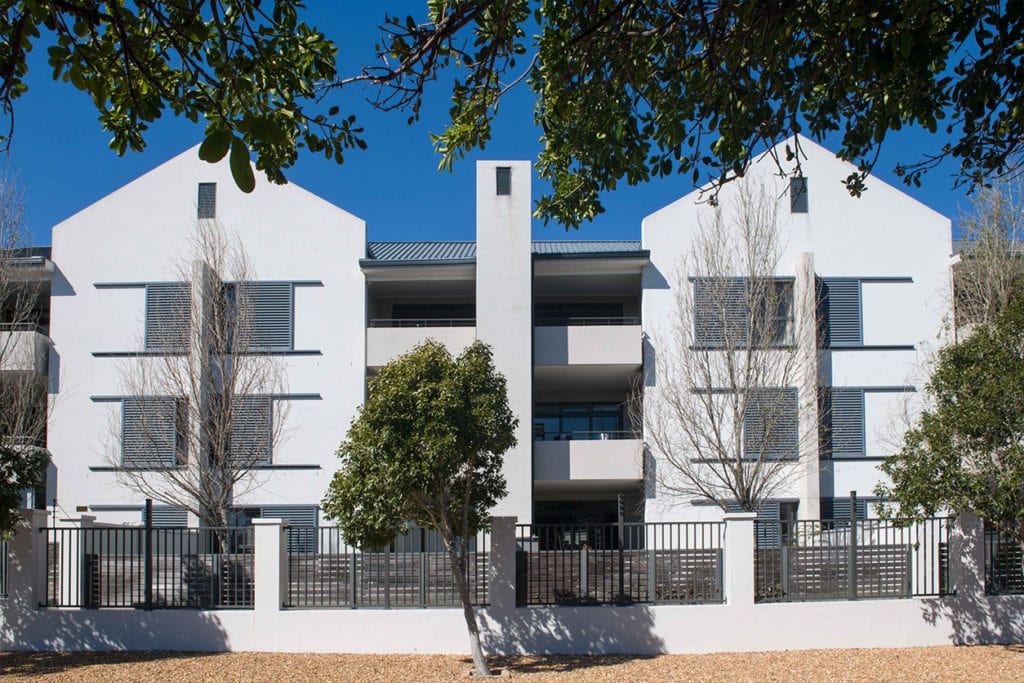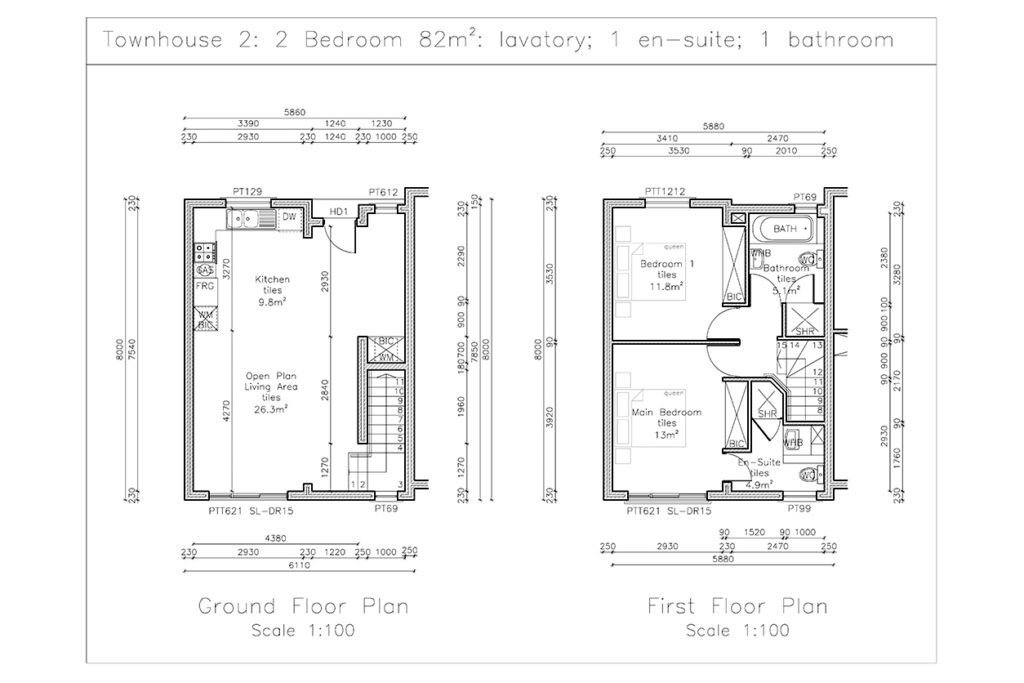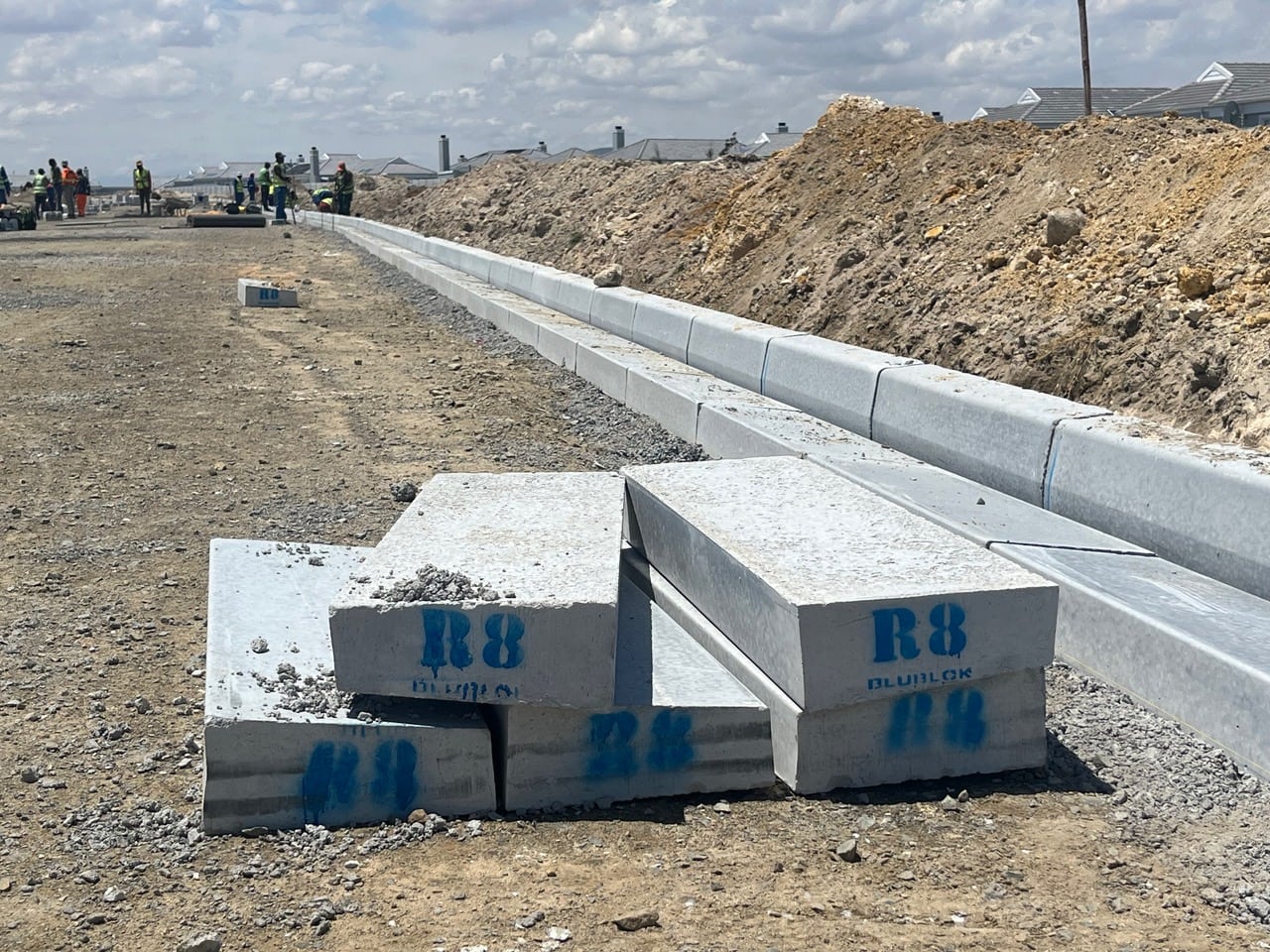
Has enough been done over the years to demystify the intricacies of sectional title homeownership? Since it hit the South African market in 1971 its potential to simplify or complicate, the lives of homebuyers remains under discussion.
There’s no doubt that owning a sectional title property makes sense in many ways. Not least is the prospect of paying less in municipal rates and other taxes. However, there is a levy to be paid by each owner. This levy takes care of shared costs that will include lighting to the common areas and maintenance of the exterior of the buildings. That doesn’t mean you might not have to pay a special levy when large-scale work has to be done. But it will be a divided cost.
Buying a freehold property allows you to have autonomy when it comes to decisions on maintenance, improvements, and lifestyle. The sectional title means that you have other owners to consider and decisions are subject to discussion. Freehold makes you totally responsible for your property. The sectional title offers a measure of sharing the responsibility.
The freehold property you buy, might not be in the area you most want to live in, but rather what you can afford. Sectional title is often a smaller property than you consider ideal, but it could mean it’s in an area where you would ideally like to live.
SHARED FACILITIES
Advantages of sectional title developments may include useful facilities to be shared by owners and occupiers. Such as a swimming pool, gym, or even a tennis court. Further, fringe benefits might be a security infrastructure in some developments. And sometimes a community lifestyle that is built into the general design.
Garden Cities’ Saint Square estate, for instance, has been designed with integrated water reuse and recovery technology. It keeps more than a hectare of indigenous landscaping, in green areas and mini play parks, irrigated year-round. Homes are standard with solar thermal systems, energy-efficient lighting, and are fiber-ready. The development is aligned to green building principles that extend to construction and the conservation of resources.

ARE THERE DISADVANTAGES TO SECTIONAL TITLES?
The sectional title property may have some disadvantages. It’s up to buyers to do their homework and check all the possible pitfalls. If they can be solved, it may be very worthwhile. But it’s always best to ensure that the basic principles of development are super sound.
- Read the body corporate rules – they should be neither too lax, nor too strict.
- Examine the unit you are interested in for hidden problems like neighbour noise.
- Or too close proximity to communal services and facilities.
- If you’re buying into an established development, take time to talk to some of the residents. This will give you an idea of the general atmosphere. Is it friendly, or could some residents be hostile?
- Check the parking and garaging facilities. Insufficient parking can cause congestion and ill-feeling.
WHO’S IN CHARGE OF ADMIN
It’s always a good idea to know who is responsible for administration, the trustees, and the residents’ association. Who the people are that you expect to look after the wellbeing of the residents. A management company is generally advisable in larger developments and the executives assigned to your administration should be approachable, helpful, and knowledgeable. They make sure that levy payments are up to date and are responsible for the body corporate’s financial affairs. Just about anything to do with your body corporate is their business.
Always check if there are any imminently-pending special levies for improvements or repairs. Make sure that you are not made liable for anything proposed before you take ownership. And hold the seller of your unit responsible where appropriate, before transfer. You don’t want to be paying for implementing the improvements that are already part of a higher price you might be paying for your unit. Make sure that you agree with the changes that are about to be made.
SHARING THE COMMON AREA
There should be very strict rules related to how individual owners use the common areas. It’s vital that the body corporate rules are specific. People will look for loopholes that could be to your disadvantage. Parking areas are often a very sensitive issue and disputes can ruin the enjoyment of living in your sectional title complex. Tidiness and cleanliness are another two flashpoints, as not everyone is as meticulous as you might be. If residents are allowed to have pets, then the rules governing their behaviour must be watertight. Barking and random dropping can create havoc.
Some points that recur when Sectional Title is discussed:
- Weighing up the advantages and disadvantages to see if they align with your lifestyle needs.
- If you plan to live permanently in the unit, avoid buying a home in a sectional title scheme with a high percentage of rental units.
- Units that aren’t owner-occupied may be filled with disorderly vacationers and the owners may not control the running of the section.
What to check for before buying a sectional title property
- That the seller owns the property and their exclusive use area they claim to own. This can be done by asking the trustees to show you a copy of their registered section plan.

- If the section has been altered or extended in any way, that the work has been registered and that it had the necessary consent.
- Whether a Right to Extend the Scheme has been registered, indicating that the developer had reserved the right to add extra buildings or extend existing ones.
- Assess the condition of the common property (e.g. brickwork, paintwork, plaster, gardens, driveways, lifts, swimming pool). If these areas are in poor condition, it’s a sign of poor management and high future expenses.

- How good are the safety and security measures
- Evaluate the rules to see if there is anything you would find difficult to comply to.
- Ask to see a copy of the latest audited accounts, paying particular attention to the financial reserves for future maintenance and repairs. A healthy reserve fund is a helpful sign of a well-run scheme.
- Check if there is any pending litigation against the body corporate.
Generally, buying a freehold or sectional title property should be hassle-free. The sale is mostly in the hands of a qualified estate agent, and the transfer of the property done by competent transferring attorneys.
The fact is that whatever you buy, it’s always wise to check the bona fides of the people involved in the selling of the property and those responsible for the planning and construction of the home.




